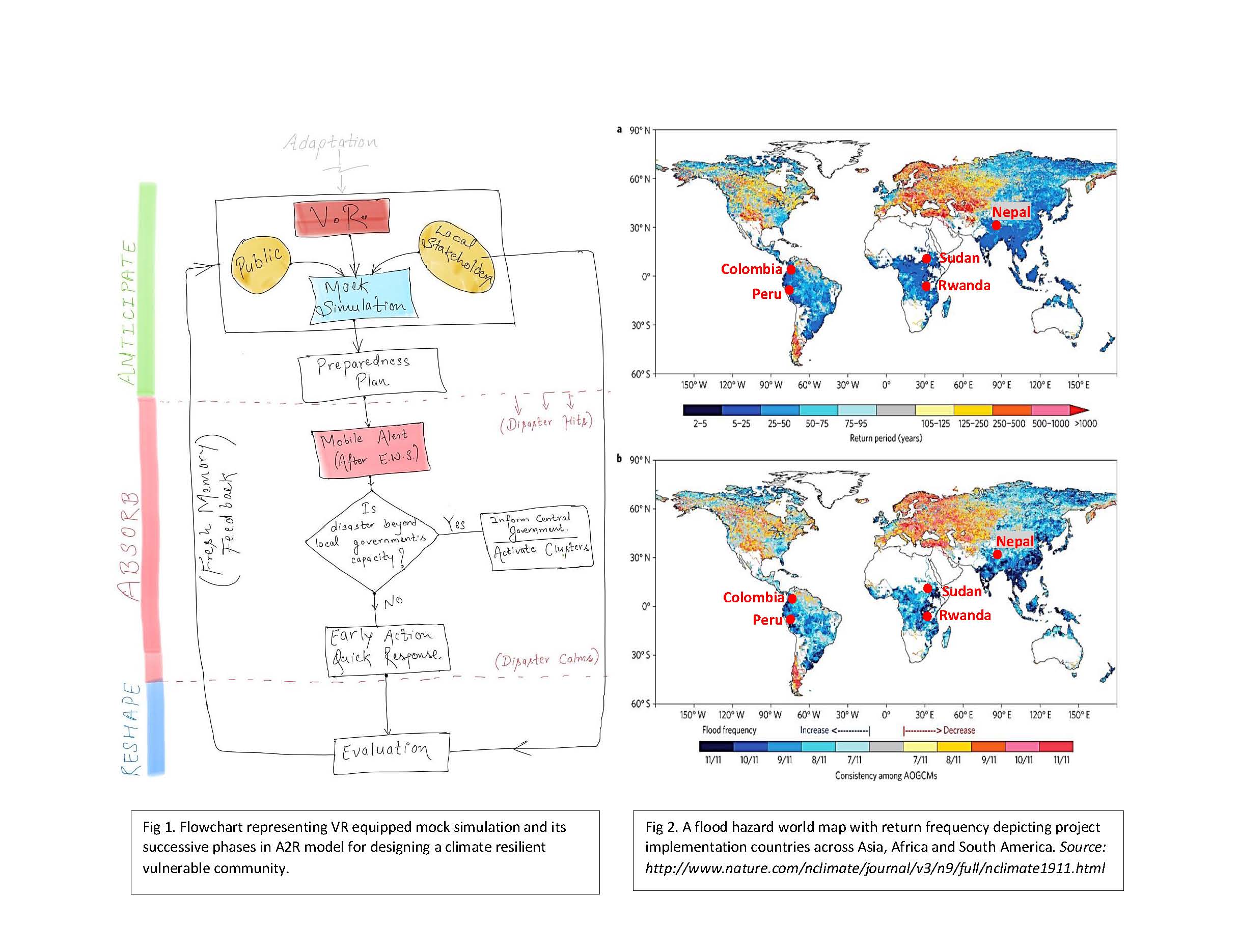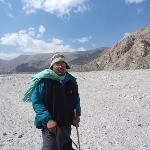
Introducing VR equipped mock simulations to incentivize people for early action by Asia-Africa-SAmerica
 Rajendra Adhikari Feb 10, 2017 08:22 | This project proposes simulating a disaster scenario in VR in order to adequately prepare vulnerable local community. What's interesting is the proposal to fully localize the simulation using real 3D data and map of the local community in order to make it even more real. If the project is successful, it could be a hallmark of disaster preparedness training for local community. |
 Deep Prakash Ayadi Feb 11, 2017 03:11 | We are doing research on' The Virtual Reality (VR) Training System for Disaster Preparedness" . You proposal is something interesting for us, please feel to contact.
|
 Mahesh Aacas Feb 11, 2017 03:53 | Proposal contributor Great to know that. Would like to know what are the updates on your side, how far you have proceed with this concept. What do you think are the difficulties when you are trying to do this research in Nepal? Let us know. |
 Amrita Gautam Feb 11, 2017 05:16 | Proposal contributor Glad to hear. It would be also interesting to know which organizations in Nepal are directly involved in this research and if the government level organizations are also aware of it? We will look forward for the recent information and updates. |
 Rajit Ojha Feb 11, 2017 10:52 | Proposal contributor It is quite interesting approach to bring the institutional framework , linking with technological advancement making the community resilient . |
 Deep Prakash Ayadi Feb 12, 2017 02:12 | You can write to us @ deep.ayadi@thethinpage.com |
 s.khan Feb 18, 2017 10:17 | The approach proposed in this project involves the use of hypothetical scenario testing to develop community and organizational preparedness. I have been involved in similar activities undertaken to help prepare the Australian drinking water industry for future extreme weather events. There is considerable evidence to support our experience, which is that such activities are very effective for identifying vulnerabilities and gaps in preparedness. They also help to clarify the responsibilities and expectations of key individuals and organisations during emergency conditions. In my opinion, the methodology that has been proposed in this case is appropriate for enhancing disaster resilience and can be expected to contribute highly valuable outcomes with real potential improve the protection of human life during future disaster scenarios. |
 Joseph Ntwari Feb 19, 2017 03:57 | Proposal contributor Hello every body ! This proposal is very interesting , |
 Mahesh Aacas Feb 20, 2017 07:32 | Proposal contributor Thanks S. Khan for putting your views. Indeed, this idea has been proved before in many places around the globe. We believe introducing VR would further increase the effectiveness and public awareness about building resilient communities.The interesting part is international institutional collaboration. The 'VR development part' is merely possible using local resources of developing countries. Myself, being from Nepal, I know this thing. But, when we propose to work together, academics and resources of developing countries for software development + international climate change funds + implementation in developing countries with the coordination of local organizations, this is possible. |
 Tuphan Subedi Mar 19, 2017 12:47 | goog one. all the best |
 Nepali Bulson Mar 20, 2017 07:33 | Respect! |
 Dennis Del Favero Mar 28, 2017 03:14 | This is an innovative project that explores more effective ways of communicating and rehearsing responses to disasters caused by climate change, an ever-increasing danger. Using cutting edge VR technology it proposes forms of realistic scenario rehearsal to improve decision-making in the face of such events. |
 Mahesh Aacas May 12, 2017 08:26 | Proposal contributor "The VR googles can be made from paper cardboards, and the final prepared VR video can be viewed in most of the Android supporting smart phones, that can be downloaded from youtube or simply transferred across devices. These makes it very easy for climate hazard vulnerable community members to view the simulated disaster in their own mobiles whenever they like. This helps to remind them frequently whenever they watch and help to be prepared to counteract or escape from the impact scale of the hazard." |
 Mahesh Aacas May 12, 2017 08:53 | Proposal contributor Delfavero, Thanks for your response. Indeed, the target is to rehearse by watching the hazard simulation VR videos and getting prepared to dodge the disasterous impact of the hazard. |